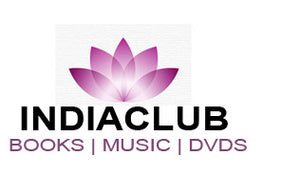
Author: Vasant Lad
Publisher: Motilal Banarsidass
Year: 2005
Language: English
Pages: 175
ISBN/UPC (if available): 81-208-1839-3
Description
For the first time a book is available which clearly explains the principles and practical applications of Ayurveda, the oldest healing system in the world. This beautifully illustrated text thoroughly explains the :
History & Philosophy
Basic Principles Diagnostic Techniques
Treatment Diet
Medicinal Usage of Kitchen Herbs & Spices
First Aid
Food Antidotes
And Much More
More than 50 concise charts, diagrams and tables are included, as well as a glossary and index in order to further clarify the text.
EXCERPTS FROM REVIEWS
Lad announces identification of the pulse. It may be quick and slithery snake like or jumpy like a frog, slow like a floating swan. The pulse rate should be checked at any time of the day and the readings noted.
Lad conveys that Ayurveda regards the human body and its sensory experiences as manifestations of cosmic energy expressed in the five basic elements.
Lad lays much emphasis on Pancha Karma, which is the physical elimination of body byproducts. The basic processes are vomiting, purgatives or laxatives, enemas.
To sum up, Lad states the Ayurveda teaches that the patient is a living book, and for understanding and physical well-being, he or she must be read daily.
-Hindustan Times
June, 1996
The section on Medicinals as well as the Appendix dealing with first aid treatment are extremely informative and useful. This perhaps is one of the few sections of the book that do justice to the part of the title that proclaims that the book is about Self healing.
Appendix A is quite useful as it indicates how the negative effects of various foodstuffs can be balanced by suitable use of spices or other substances with it…Sections where the author has dealt with topics with topics like medicinals, first aid and foods (for various constitutions) are clear and useful.
-A V Balasubramanian
Centre for Indian Knowledge Systems, Madras
Contents
Preface
Chapter I: History and Philosophy
Chapter II: The Five Elements and Man
Chapter III: The Human Constitution
Chapter IV: Disease Process
Chapter V: Attributes
Chapter VI: Diagnosis
Chapter VII: Treatment
Chapter VIII: Diet
Chapter IX: Taste
Chapter X: Lifestyle and Routine
Chapter XI: Time
Chapter XII: Longevity
Chapter XIII: Medicinals
Conclusion
Appendices
Glossary
Bibliography
Index
